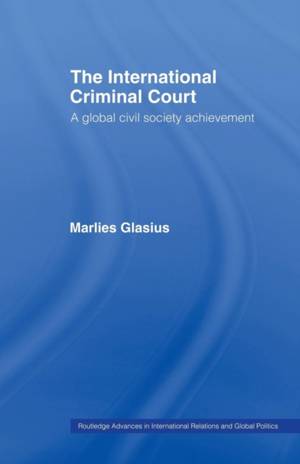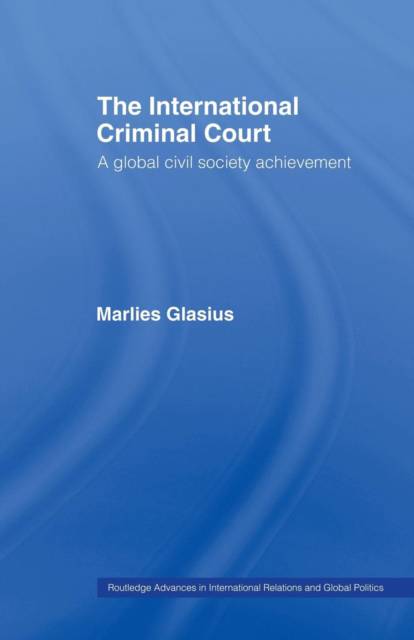
- Afhalen na 1 uur in een winkel met voorraad
- Gratis thuislevering in België vanaf € 30
- Ruim aanbod met 7 miljoen producten
- Afhalen na 1 uur in een winkel met voorraad
- Gratis thuislevering in België vanaf € 30
- Ruim aanbod met 7 miljoen producten
Omschrijving
A new examination of the International Criminal Court (ICC) from a political science and international relations perspective.
It describes the main features of the court and discusses the political negotiations and the on-going clashes between those states who oppose the court, particularly the United States, and those who defend it. It also makes these issues accessible to non-lawyers and presents effective advocacy strategies for non-governmental organizations. It also delivers essential background to the place of the US in international relations and makes a major contribution to thinking about the ICC's future.
While global civil society does not deliver global democracy, it does contribute to more transparent, more deliberative and more ethical international decision-making which is ultimately preferable to a world of isolated sovereign states with no accountability outside their borders, or exclusive and secretive state-to-state diplomacy.
This book will be of great interest to students and scholars of international relations, international law, globalization and global governance.
Specificaties
Betrokkenen
- Auteur(s):
- Uitgeverij:
Inhoud
- Aantal bladzijden:
- 174
- Taal:
- Engels
- Reeks:
Eigenschappen
- Productcode (EAN):
- 9780415459952
- Verschijningsdatum:
- 22/10/2007
- Uitvoering:
- Paperback
- Formaat:
- Trade paperback (VS)
- Afmetingen:
- 140 mm x 216 mm
- Gewicht:
- 208 g

Alleen bij Standaard Boekhandel
Beoordelingen
We publiceren alleen reviews die voldoen aan de voorwaarden voor reviews. Bekijk onze voorwaarden voor reviews.











